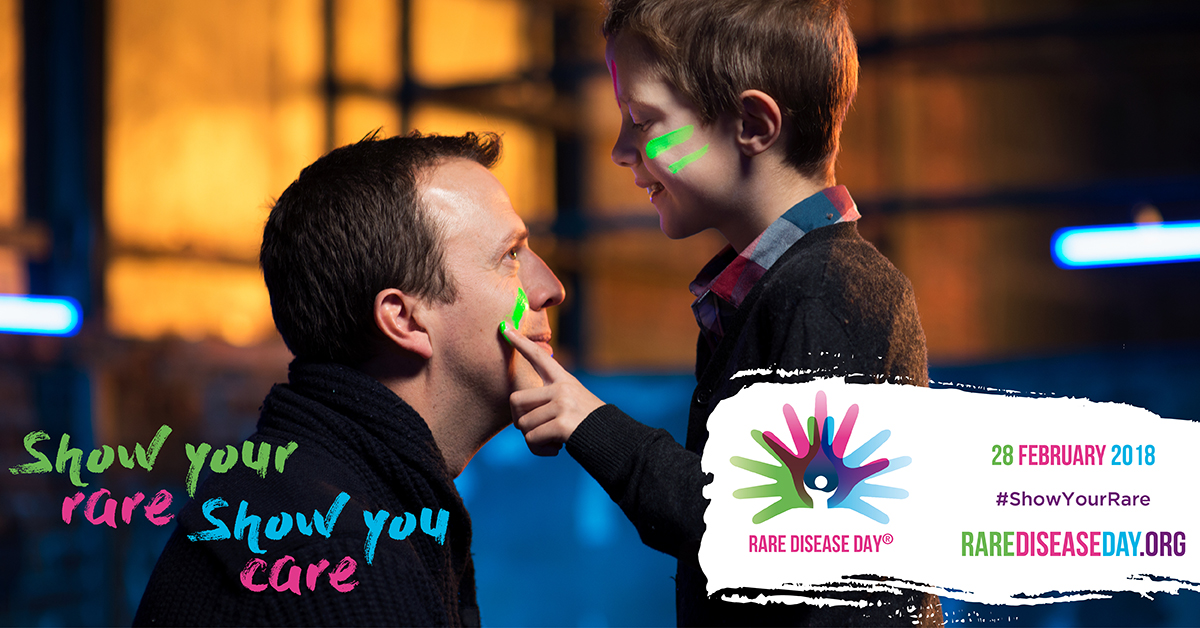 Father and son Antoine and Alexandre both appear in the official Rare Disease Day 2018 video. Alexandre lives with fibrodysplasia ossificans progressiva, a very rare connective tissue disease. As is often the case with rare diseases, there was a long period of 6 months before the diagnosis was reached. Antoine had not heard of FOP before, and so instinctively went to the internet only to find dramatic and shocking stories. There was not much information on the disease and so it was easy to find unreliable accounts of the disease. The reliable information that was available was mostly in English (Antoine’s mother tongue is French), but they were luckily referred to a very good geneticist. Though there is currently no treatment for FOP he advised the best way to deal with the challenges presented by FOP.
Father and son Antoine and Alexandre both appear in the official Rare Disease Day 2018 video. Alexandre lives with fibrodysplasia ossificans progressiva, a very rare connective tissue disease. As is often the case with rare diseases, there was a long period of 6 months before the diagnosis was reached. Antoine had not heard of FOP before, and so instinctively went to the internet only to find dramatic and shocking stories. There was not much information on the disease and so it was easy to find unreliable accounts of the disease. The reliable information that was available was mostly in English (Antoine’s mother tongue is French), but they were luckily referred to a very good geneticist. Though there is currently no treatment for FOP he advised the best way to deal with the challenges presented by FOP.
Accepting the diagnosis
Many parents say that having a child opens up a new world to them, and this could not be more true for Antoine. He says that as soon as he got the diagnosis everything that before had seemed important to him was put into perspective. He re-ordered his priorities and is constantly rewarded with the joy that Alexandre brings to all those around with each accomplishment reached.
Finding reliable information
What advice would he give to a parent whose child has been recently diagnosed with a rare disease? The first and most important thing, Antoine says, is to make sure you gain valuable information from those that have a good knowledge of the rare disease, and to not search for information on the internet. Equally important is to sit and reflect on the diagnosis with your family so that you are all aware of the implications of the disease and the challenges faced. Then, he says, is the time to find others who are also living with the rare disease via patient groups to help to realise that you are not alone, however rare the disease.
The important role of patient groups
This is especially true in Alexandre’s case as FOP is so rare, with incidence of around 1 in 2 million, it was difficult to find others in the same situation, especially from their own country, France. The international FOP friends community was a little bigger but the majority of communication was in English. Though Antoine speaks good English, he was concerned that it was not as accessible for those who could not and for that reason is keen to improve the French community. He outlines the two main roles patient groups play in supporting those living with rare diseases. Firstly they relay the experiences of their members who can help those recently diagnosed understand the situation and challenges of living with the rare disease. Secondly due to the isolation felt by many rare disease patients, these groups can promote solidarity of patients, to make those living with rare diseases feel like one of many.
